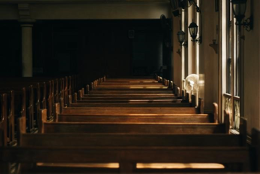
The combined effect of the pandemic and its toll on African-Americans and the recent protests over racial violence in law enforcement has alienated a segment of black members from their more conservative churches as they seek spiritual fulfillment elsewhere, writes Dara T. Mathis in the Atlantic (October 11, 2020). “Many black parishioners, especially those at multiracial institutions, bristle when they hear rhetoric from church leaders that ignores how health inequities and racism are affecting the black community right now. Others are hurt by their church’s conspicuous silence on these issues,” she writes. Mathis adds that it is too early to put numbers on this “exodus,” but she notes that the dissenting congregants she interviewed had similar stories of disenchantment. They report being distressed by the clergy’s insensitivity to how COVID has adversely affected the black community as they press for the reopening of churches and in-person participation. At the same time, these dissatisfied members find that their congregations don’t address racism and more often stress racial reconciliation that calls for improving black-white relations on an individual basis.
Mathis writes that other churches and clergy “might hesitate to endorse Black Lives Matter, because of ideological differences with the national organization and its founders. But black parishioners’ desire for recognition doesn’t mean they’re ideologically aligned with the national group— they just want to know that their congregation values them.” Most of this discomfort for these black Christians have been with non-denominational multi-ethnic churches, which they value for their contemporary culture and worship that seeks racial harmony. But they have  also criticized historic black churches for ignoring congregants’ health and other needs in recent months and for their “clinging to attendance as a barometer of faithfulness even during the pandemic,” Mathis writes. Others she interviewed criticize how older black clergy tend to be more conservative, criticizing looting and ignoring the importance of the recent protests. Such disenchanted members have taken advantage of their time away from their congregations and the proliferation of online services during the pandemic to investigate how other churches have approached these contentious issues. Most of the church members Mathis spoke with are optimistic about joining another fellowship after they leave their churches. As one woman told her, she is certain that her next church will be one where the “pastor has no problem saying ‘Black Lives Matter’.”
also criticized historic black churches for ignoring congregants’ health and other needs in recent months and for their “clinging to attendance as a barometer of faithfulness even during the pandemic,” Mathis writes. Others she interviewed criticize how older black clergy tend to be more conservative, criticizing looting and ignoring the importance of the recent protests. Such disenchanted members have taken advantage of their time away from their congregations and the proliferation of online services during the pandemic to investigate how other churches have approached these contentious issues. Most of the church members Mathis spoke with are optimistic about joining another fellowship after they leave their churches. As one woman told her, she is certain that her next church will be one where the “pastor has no problem saying ‘Black Lives Matter’.”
(The Atlantic, https://www.theatlantic.com/politics/archive/2020/10/why-black-parishioners-areleaving-churches/616588/)